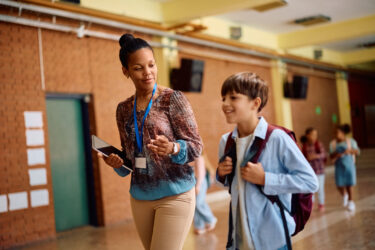Investing Equitably in School Facilities
Poor indoor environmental quality impairs student health and decreases academic performance, yet many school facilities are in disrepair, creating subpar learning conditions. In a 2020 national survey, half of U.S. school districts reported needing to update or replace at least two building systems in many schools. And when localities alone bear the cost of repairs to their school facilities, poorer districts are least likely to be able to afford them.
Among the most common unmet repair needs are for heating, ventilation, and air conditioning (HVAC) systems, plumbing, interior lighting, roofing, and security. Proper ventilation is of particular concern in managing COVID-19, an airborne virus, yet 30 percent of schools have unmet HVAC repair or replacement needs. “Improving the school building may well be the most overlooked means of improving student health, safety, and academic performance,” assert Erika Eitland and Joseph Allen of Harvard University’s T.H. Chan School of Public Health. Safe drinking water, adequate lighting, controlled temperatures, ventilation, and removal of toxic substances are basic prerequisites for a healthy physical space. Their absence in schools puts both students and staff at risk.
Schools rely on local property taxes to fix and build schools, but poorer, smaller communities typically lack a sufficiently robust tax base and central office staff to address facility needs. As a result, these communities face a greater repair backlog. Thus, equity should be a guiding principle in state decisions to invest in facilities. …
Investing Equitably in School Facilities
Related Content
-
Using Federal Funds to Remediate Lead
This NASBE analysis highlights ways state leaders can leverage the current policy climate and available federal funds to better support school districts in lead remediation so that all children have access to clean drinking water in schools.
-
How States Are Handling Lead in School Drinking Water
This NASBE analysis details how statewide efforts to test for lead in school drinking water vary across the country.
-
How States Are Handling Lead in School Drinking Water, Examining New Research
Join us for the webinar release of a new NASBE report that details the current landscape of state lead testing programs, both mandatory and voluntary, and common challenges, best practices in policy, and actionable recommendations for state leaders to address lead in drinking water at schools.

 i
i
 i
i
 i
i